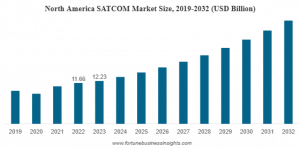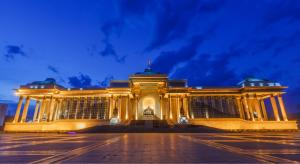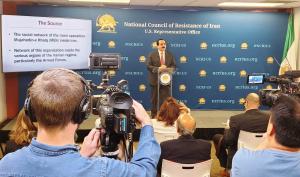Alireza Jafarzadeh, the deputy director of the Washington office of the National Council of Resistance of Iran (NCRI-US), shares classified documents and intelligence about the IRGC’s clandestine scheme to evade sanctions, during a press briefing on May 31, 2023.
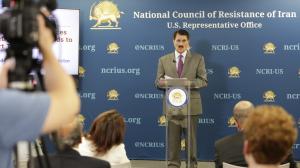
Ali Safavi, a member of the Foreign Affairs Committee of the National Council of Resistance of Iran, opens the NCRI-US’s press conference which exposed the IRGC’s elaborate clandestine scheme to evade sanctions, on May 31, 2023.
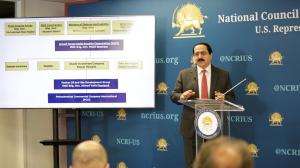
Alireza Jafarzadeh, the deputy director of the Washington office of the National Council of Resistance of Iran (NCRI-US), shares classified documents and intelligence about the IRGC’s clandestine scheme to evade sanctions, during a press briefing on May 31, 2023.
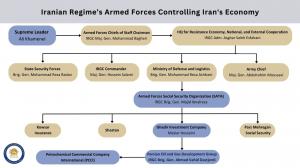
Chart presented during a press conference by the Washington office of the National Council of Resistance of Iran (NCRI-US), sharing classified documents about the IRGC’s elaborate clandestine scheme to evade sanctions, during a press briefing on May 31, 2023.
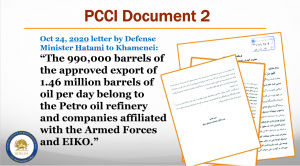
Classified documents and intelligence shared during a press conference on May 31, 2023, by the Washington office of the National Council of Resistance of Iran (NCRI-US), exposing the IRGC’s elaborate clandestine scheme to evade sanctions.
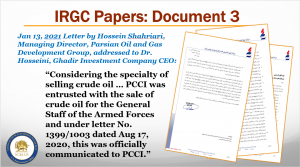
Classified documents and intelligence shared during a press conference on May 31, 2023, by the Washington office of the National Council of Resistance of Iran (NCRI-US), exposing the IRGC’s elaborate clandestine scheme to evade sanctions.
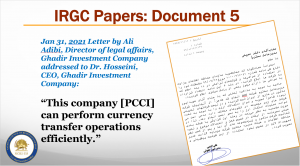
Classified documents and intelligence shared during a press conference on May 31, 2023, by the Washington office of the National Council of Resistance of Iran (NCRI-US), exposing the IRGC’s elaborate clandestine scheme to evade sanctions.

Key policy suggestions offered during a press conference on May 31, 2023, by the Washington office of the National Council of Resistance of Iran (NCRI-US), exposing the IRGC’s elaborate clandestine scheme to evade international sanctions.
The IRGC is at the center of sanctions evasion, selling billions of dollars of oil and petrochemical products.
— Alireza Jafarzadeh, Deputy Director of NCRI’s Washington Office
WASHINGTON, DC, UNITED STATES, June 2, 2023/EINPresswire.com/ — On May 31, 2023, the U.S. Representative Office of the National Council of Resistance of Iran (NCRI-US) held a news conference to expose an ongoing, sophisticated, and elaborate international scheme by the Iranian regime’s Islamic Revolutionary Guard Corps (IRGC) to clandestinely sell substantial amounts of oil and petrochemical products to finance its covert terror operations abroad. Here is a brief summary of the information and classified documents presented at the press conference.
THE SOURCE
The social network of the main opposition Mujahedin-e Khalq (MEK) inside Iran and the network of this organization inside the various organs of the Iranian regime have obtained documents that reveal information about one of the regime’s important organs used in the field of oil and petrochemicals to circumvent sanctions. These documents show that the facilities of this organization, which is under the control of the regime’s Armed Forces, specifically the IRGC, are clearly used to finance the regime’s belligerence and terrorism abroad and repression at home.
PETROCHEMICAL COMMERCIAL COMPANY INTERNATIONAL (PCCI)
The Petrochemical Commercial Co. International (PCCI), established in 2000, bypasses the oil and petrochemical sanctions in astronomical dimensions by creating branches and companies with the same name outside Iran (specifically countries that are not under sanctions). It spends the resulting financial benefits to promote the regime’s policies abroad.
PCCI is a subsidiary of “Parsian Oil and Gas Development Group” owned by Ghadir Investment Holding, one of Iran’s commercial and investment giants. Ghadir belongs to the Social Security Organization of the Armed Forces (SATA) (the Chairman of the Board of Directors and CEO of SATA is IRGC Brigadier General Dr. Seyed Majid Ibnalreza).
Ghadir and several other similar groups operate under the supervision of Brigadier General Mustafa Najjar (former Minister of Defense) within the context of the “Resistant Economy” ordered by the regime’s Supreme Leader Ali Khamenei to cede control of Iran’s economic arteries to the Islamic Revolutionary Guard Corps (IRGC).
The PCCI was registered on May 17, 2000, with 100% ownership of National Petrochemical Industries Company under the title “Petrochemical Trading Company (Limited Liability)” with number 77283 in the Jersey Companies Registration Office in Channel Island, England. On August 18, 2000, the company’s name was changed to “Petrochemical Commercial Company International (Limited Liability).”
The US government sanctioned PCCI on May 24, 2011. Subsequently, on November 3, 2011, the regime transferred this company to Labuan Island in Malaysia, a free trade island with no import taxes (making it a suitable place for oil and gas processing).
According to the business plan of this company for the Iranian year 1402 (March 2023 to March 2024), PCCI currently has four trust companies and relevant offices in the UAE (in Jebel Ali free zone), one trust company in Turkey, and it also is the largest Iranian company with a history of presence and activity in Turkmenistan.
PCCI ACTIVITIES AND OPERATIONS
The obtained documents show that PCCI has been active in the following fields:
• Selling the assigned crude oil quota belonging to the Armed Forces General Staff. One of the documents specifies the dimensions of crude oil allocation to the General Staff of the Armed Forces. Major General Amir Hatami (Minister of Defense and Armed Forces Support) stated in a letter to Supreme Leader Khamenei on October 24, 2020, that 990,000 barrels of the approved export of 1.46 million barrels of oil per day belong to the Petro oil refinery and companies affiliated with the Armed Forces and the Execution of Imam Khomeini’s Order (also known as EIKO, or SETAD, a huge economic empire under the control of Khamenei and his office with assets worth over 100 billion dollars).
• Considering the specialty of selling crude oil, in the implementation of Clause (f) Note (1) of the budget law for the year 2019 of the whole country, PCCI Company was entrusted with the sale of crude oil for the General Staff of the Armed Forces and under letter No. 1399/1003 P.P. dated 5/27/1399, this was officially communicated to PCCI.
• Selling Venezuelan oil. In this regard, it has sold five million barrels of extra heavy crude oil per month for one year.
• Selling the chemical product Urea (also known as Carbamide) exported by the Ministry of Defense to Yemen (Houthis).
In a confidential document dated January 13, 2021, Hossein Shahriari, CEO of Parsian Oil and Gas Development Group, stated to Dr. Hosseini, then CEO of Ghadir Holding:
“… the purchase of export products from manufacturing companies was assigned to PCCI. Moreover, in addition to allowing the purchase of export products of petrochemical companies, the mission of selling urea to the support staff of the Yemeni public aid and implementing the provisions of the memorandum of understanding between the Ministry of Defense and the support of the armed forces of the Islamic Republic of Iran with the Ministry of Oil of Syria and focusing the sale of crude oil allocated to the Ministry of Defense and purchase and sale of Venezuela’s oil has been assigned to PCCI…”
PCCI also fulfills the orders of the international affairs department of the Ministry of Defense. Among other things, the military attaché of the Ministry of Defense of the regime in Belarus has requested polymer products from this company, which this company has fulfilled.
The PCCI parent company managers clearly state that PCCI “performs currency transfer operations.” As a foreign company, PCCI buys manufactured items from Iranian companies and sells them to foreign customers.
Among other things, in the letter dated January 31, 2021, addressed to the then CEO of Ghadir Investment Group, Amir Abbas Hosseini, reference has been made to a letter from the “Information Protection Organization of the Ministry of Defense,” which states:
“… according to the telephone negotiation that was conducted with Mr. Hoveydapour, the respected CEO of PCCI company, apparently since the said company is registered outside of Iran and was not on the list of sanctioned companies, it seems that it has experience and ability for currency transfers due to the number of companies in different countries. It claims to be able to carry out currency transfers efficiently. Therefore, if deemed appropriate, an initial report should be obtained from him with a very confidential classification regarding the relevant activities and the methods of activity of the mentioned company and its subsidiaries. After obtaining the opinion of the intelligence branch and the respected board of directors of Ghadir Investment Group, efforts should be made to assess and approve the leveraging of this capacity.”
The managing director of PCCI stated in the report dated October 25, 2022, to Dr. Hosseini, the then-managing director of Ghadir Holding, “According to the mission of this company in line with the sale of oil for the quota of the Ministry of Defense of the Budget Law of 2019, a heavy crude oil shipment of 760,000 barrels was loaded from the southern ports of Iran and 32 ships of Iranian light crude oil were loaded with the amount of 1,070,000 barrels from the northern ports of the Caspian Sea, and about 100 million dollars from the mentioned budget was made available to the Ministry of Defense. It is worth mentioning that due to the limitations in the Caspian Sea and the maximum loading capacity of 35,000 barrels per ship, the loading operation was very difficult and this company was able to carry it out correctly. It is necessary to clarify that PCCI is the first crude oil exporting company from the north and south of the country, which, due to the restrictions imposed on the country, managed to do this task accurately and consistently in less than two months.”
The same document states that 605,000 tons of urea exported from Kermanshah, Pardis, and Shiraz petrochemicals were sold by this company between 2019 and 2022.
Another part of the activities of this company has revolved around the conclusion of a contract for the sale of Venezuelan heavy oil (Crude Oil Mery 16) with PDVSA (Venezuelan state oil and gas company) and selling it in the southern regions of China.
PCCI PLANS FOR THE IRANIAN CALENDAR YEAR 1402 (MARCH 20, 2023, TO MARCH 20, 2024)
In its business plan for the Iranian year 1402, PCCI states, among other things, that one of the major missions of this company is “civilian commercial interactions of the ministries of defense and armed forces” (including the IRGC).
It will also have special presence and attention in countries where other companies refrain from seriously entering due to certain security, economic, sanctions, and other situations, including Iraq, Syria, Lebanon, Afghanistan, Pakistan, Russia, Turkmenistan, Armenia, and Venezuela, by using its potential capacities.
In addition to urea, it has on its agenda the monthly sale of 2 shipments of petroleum products in the UAE and East Asia markets.
In regard to Syria, the Iranian regime has significantly helped the Syrian dictator, Assad, by providing oil and petrochemical products. PCCI accompanied the delegation of the Ministry of Defense and Support of the Armed Forces to Syria to supply Syria with oil. And a joint committee was formed between Syria and Iran “for the development of joint economic cooperation.”
FUNDING REPRESSION OF PROTESTERS DURING IRAN UPRISING
The revenue made by PCCI and allocated to the military is used in Syria, Yemen, and other regional countries to support its regional proxies and fund terrorism.
However, the revenue is also used to empower and additionally fund the state security forces and other repressive forces to crush the uprising in Iran and suppress the protesters seeking regime change.
Documents obtained from inside the Iranian regime clearly show that Parsian Oil and Gas Development Company, which owns PCCI, thru its subsidiary, Pardis Petrochemical Company, funded the suppression of the workers in southern Iran who had revolted against the regime. Pardis Petrochemical Company wired 4 billion rials to SATA (Armed Forces Social Security Organization) for the suppression of the October 18, 2022, protests in Asaluyeh economic region.
CONCLUSION:
1. The Petrochemical Commercial Company International (PCCI), is the Iranian regime’s leading entity to defy sanctions to sell oil and petrochemical products in astronomical dimensions and fund terror.
2. PCCI is a subsidiary of “The Parsian Oil and Gas Development Group Company,” which is a subsidiary of the economic giant Ghadir Investment Company operated by the IRGC and ultimately controlled by the Supreme Leader Ali Khamenei.
3. PCCI sells assigned crude oil for the Armed Forces General Staff. Some 990,000 b/d of oil out of 1.46 million b/d (two-thirds) is allocated to benefit the Armed Forces and Khamenei’s SETAD, despite the sanctions.
4. PCCI is heavily involved in currency transfers by evading sanctions.
5. PCCI accompanied the Ministry of Defense delegation to Syria to supply oil; it also sells exported urea from the Ministry of Defense to Yemen (Houthis). PCCI also sells Venezuelan oil.
6. PCCI revenue is also used to additionally fund the repressive forces to suppress the protesters seeking regime change in Iran.
POLICY SUGGESTIONS:
1. Today’s information shows that the Iranian regime has been defying sanctions, violating international laws, funding its terror operations abroad, and suppressing protesters in Iran, all thru lies and deception.
2. The policy of appeasement by the West, particularly over the past two and a half years, has allowed Tehran to circumvent sanctions, proceed with its nuclear weapons program, and empower its terror network.
3. Every dollar that ends up in the coffers of the regime is used for terrorism and inciting violence abroad and suppression at home. Appeasement has always been wrong, but it is particularly immoral when the Iranian people have rejected this regime in its entirety and are seeking a free, democratic, non-nuclear republic, as evident in their protests.
4. U.S. Congress has the opportunity to legislate bills that would close the loopholes, and impose very strict sanctions to prevent the Iranian regime’s ploys to fund its terror operations abroad and repression at home.
5. Now is the time for the United States and other Western nations to re-impose all six U.N. Security Council resolutions on the Iranian regime and stand on the side of the Iranian people.
ABOUT NCRI
The National Council of Resistance of Iran (NCRI) is a democratic opposition coalition founded in 1981 in Iran as the alternative to the clerical regime. The NCRI would serve as a provisional government led by its President-elect, Maryam Rajavi, based on her Ten-Point Plan, once the theocracy is ousted. The provisional government’s primary responsibility will be to hold free and fair elections for a national and constituent assembly within six months after the regime’s fall and to ensure the peaceful transition of power to the elected representatives of the Iranian people.
The People’s Mojahedin Organization of Iran (PMOI), also referred to as the Mujahedin-e Khalq (MEK), Iran’s largest, most organized opposition group, is the principal member of the NCRI.
# # #
——————————————————
These materials are being distributed by the National Council of Resistance of Iran-U.S. Representative Office. Additional information is on file with the Department of Justice, Washington, D.C.
NCRI-US
National Council of Resistance of Iran – US Rep. Office
202-747-7847
email us here
Visit us on social media:
Facebook
Twitter
LinkedIn
Instagram
YouTube
![]()
Article originally published on www.einpresswire.com as NCRI Reveals Khamenei Enables Iran Armed Forces with Oil and Petrochemical Funds to Export Terrorism

